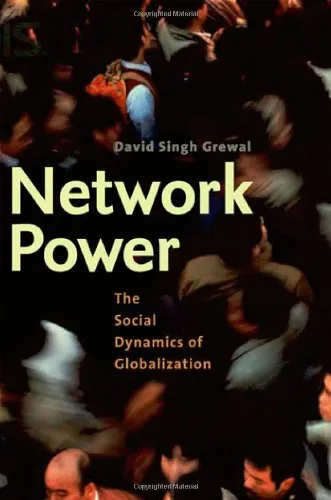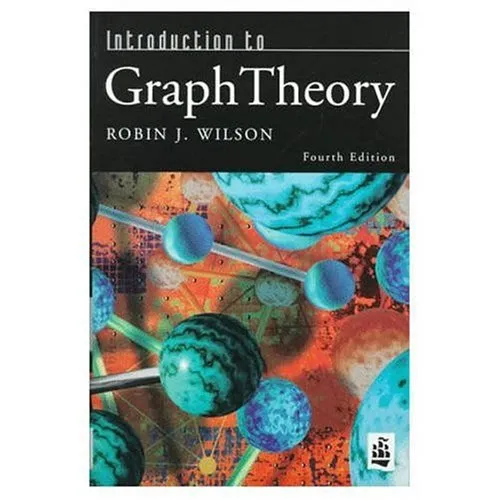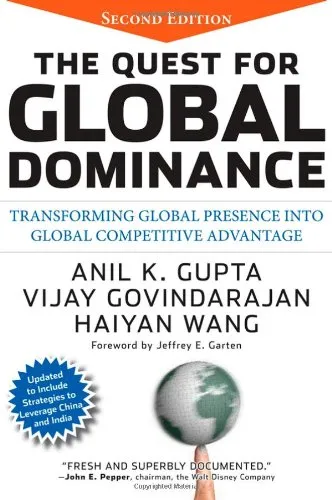Network Power: The Social Dynamics of Globalization
4.0
Reviews from our users

You Can Ask your questions from this book's AI after Login
Each download or ask from book AI costs 2 points. To earn more free points, please visit the Points Guide Page and complete some valuable actions.Related Refrences:
Introduction to Network Power: The Social Dynamics of Globalization
In the modern world, globalization has emerged as a powerful force that shapes economics, politics, and social interactions across the globe. Yet, this phenomenon is not as straightforward as it appears. In Network Power: The Social Dynamics of Globalization, David Singh Grewal explores the intricate mechanisms behind globalization, offering a nuanced framework to understand how and why certain norms, practices, and systems come to dominate globally.
Grewal introduces the concept of "network power" to illustrate how the choices individuals and communities make are increasingly shaped by global standards and networks. Through a deep dive into economics, culture, and politics, the book analyzes the seemingly paradoxical dynamics of globalization—its ability to create opportunities while simultaneously constraining them. It addresses key questions around how globalization's norms structure participation in global systems and whether its outcomes are truly beneficial for all.
Detailed Summary of the Book
At its core, the book offers a fresh perspective on understanding how globalization evolves through the dynamics of "network power."
Grewal’s central argument is that globalization is primarily driven by the adoption of shared standards, norms, and practices. These shared systems, such as a common language or financial standards, facilitate easier coordination and interaction. Yet, once these standards gain critical mass, they create a kind of compulsion—forcing others to join these networks or face exclusion. This phenomenon explains why globalization often feels both empowering and oppressive, as adopting widely accepted standards can open new doors while closing others.
The first half of the book is dedicated to laying down the theoretical foundations of network power. Grewal provides examples from various domains, such as international business, cultural exchanges, and technological systems. One illustrative example is the dominance of the English language, which people adopt to access global networks but may inadvertently supplant local languages and cultures.
In the latter half of the book, Grewal transitions to exploring globalization's ethical dimensions. He questions whether globalization inevitably leads to homogenization and whether new institutional frameworks can be designed to safeguard diversity. Through engaging analysis, he challenges readers to reimagine globalization as a process that can be steered toward more equitable and inclusive outcomes.
Key Takeaways
Here are some of the most important insights gained from reading this compelling book:
- Globalization operates through networks, where standards and norms gain power as more people adopt them.
- Adhering to global standards can bring benefits such as access to larger markets, but it can also diminish diversity and force people to abandon localized ways of life.
- "Network power" is not inherently good or bad but depends on how it is wielded and managed, and whether participants are given genuine choices to opt in or out of global networks.
- Ethical globalization requires rethinking institutional systems to ensure that marginalized voices are heard and incorporated into decision-making processes.
Famous Quotes from the Book
Below are some of the most resonant quotes from Network Power:
"The power of the network derives not from outright coercion but from a lack of compelling alternatives."
"Standards are the invisible scaffolding of globalization—subtle yet transformative, bringing together people while reshaping what they leave behind."
"Globalization presents a paradox: while it increases options for some, it often constrains the choices of others."
Why This Book Matters
In the vast literature on globalization, Network Power: The Social Dynamics of Globalization stands out for its unique approach and relevance to contemporary debates.
Grewal's concept of "network power" offers a much-needed analytical lens for understanding the complexity of globalization. His argument moves beyond the typical binary of globalization as good or bad, presenting it instead as a multifaceted phenomenon with both advantages and drawbacks. This balanced perspective is essential for making sense of why certain global norms take root and how their rise can be navigated ethically.
The book is particularly relevant in an era of growing inequality and cultural homogenization. As people around the world grapple with the implications of global integration—whether through economic systems, technological platforms, or linguistic hegemony—this book provides a roadmap to critically evaluate these developments. At the same time, it opens pathways for thinking about how globalization can be steered toward a more inclusive and sustainable trajectory.
Ultimately, Network Power equips readers, policymakers, and scholars with the tools to deconstruct and reshape the forces of globalization for the betterment of all.
Free Direct Download
You Can Download this book after Login
Accessing books through legal platforms and public libraries not only supports the rights of authors and publishers but also contributes to the sustainability of reading culture. Before downloading, please take a moment to consider these options.
Find this book on other platforms:
WorldCat helps you find books in libraries worldwide.
See ratings, reviews, and discussions on Goodreads.
Find and buy rare or used books on AbeBooks.
1336
بازدید4.0
امتیاز0
نظر98%
رضایتReviews:
4.0
Based on 0 users review
Questions & Answers
Ask questions about this book or help others by answering
No questions yet. Be the first to ask!













